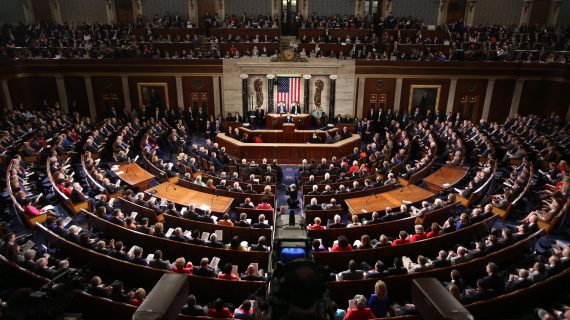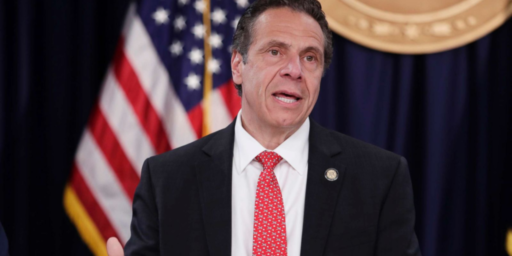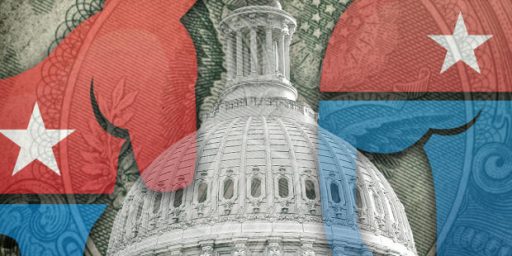What’s a “Normal” First Term Seat Loss?
Looking at some historical data.

As has been noted, it is the normal trend for a president’s party to lose seats in mid-term elections. So, what does the historical trend look like for comparative purposes?
Here’s a list of first-term midterms going back to Nixon (which is an arbitrary cut-off, I will admit):
| Nixon | 1970 | -12 |
| Carter | 1978 | -15 |
| Reagan | 1982 | -26 |
| Bush 41 | 1990 | -8 |
| Clinton | 1994 | -52 |
| Bush 43 | 2002 | +8 |
| Obama | 2010 | -63 |
| Trump | 2018 | -40 |
The link will take you back to FDR in 1934, who like Bush 43, had moderate gains in his first mid-term. Overall, however, the basic pattern of loses holds over time, although the number of seats clearly varies. If we expand the list to include second mid-terms (or more in FDR’s case) the trend still shows consistent loss of seats, save for Bill Clinton’s +5 in 1998.
One has to consider that that 1934-1994 party system, and the post 1994 party system are very different (1994 started the sorting and polarization that we now like with), which is an important observation if we want to make comparative statements.
I have nothing profound to say about the table, but wanted to give the numbers to create context for whatever the final 2022 figure is.
I would again remind readers of the structure of the current map.






I would just point out that the two Bush numbers come after major foreign policy crises – Iraq’s invasion of Kuwait and 9/11. My guess is that absent those, their numbers would have been worse.
Bush 43 is an outlier due to the invasion and occupation of Iraq, which all political stripes supported to some extent. Political blackmail was involved.
That said…another Biden win.
@Andy:
So maybe the real story behind 2022 is that the significant number of voters are treating 1/6 as a crisis on the level of 9/11 or the first Gulf War, so it acted more like a “war” midterm then a “peace” midterm?
Clearly, presidents with a last name starting with B do better in their first midterms, averaging no loss of seats in the House, and Biden is underperforming slightly.
I dont think the voting response was widely spread enough to consider it a reaction to 1/6. I think its mostly a matter of managing to nominate candidates so awful that people wouldn’t vote for them even if they thought the economy was bad due to inflation and they didnt like Biden that much. If you arent running in a +20-30 district it turns out that quality can matter.
Steve
@steve: Agree with you on 1/6. Myself, I think there’s a rising feeling that the Republican-dominated Supreme Court is perfectly happy to let Republicans, including themselves, take all sorts of personal rights away, not just women’s reproductive health. They’re okay with voter suppression. They’re okay with doing away with affirmative action. It feels like they’re ready to roll back gender-identity and marriage rights, regulation for environmental and climate change, and more.
@Stormy Dragon:
As for 1/6 specifically, I’m skeptical – the public just wasn’t that interested – I’d say it’s more likely the bigger GoP election-denying zeitgeist along with what Steve said.
I was skeptical of Democratic fearmongering about the “end of democracy” and other things as an effective messaging strategy, but at this point, it’s hard to argue that was a mistake, especially considering the extent to which the GoP did little to try to dispel that narrative.
But I do think there were other factors in play – Covid, the craziness of several GoP candidates, Trump, etc. I doubt it’s possible to tease out how much any one of them contributed, though.
Mitch McConnell packed the court with right-wing assholes and cost himself the majority. Well done, Irony Gods.
@Gustopher:
Hush! Do you want a President Boebert? Because that’s how you get a President Boebert!
“1994 started the sorting and polarization that we now like with.”
The 1990s completed what had started in the 1960s, sorting didn’t start there. And polarization had been observed since the 1980s.
@Thomas Jefferson: Indeed. I really meant that it was the main dividing line in the current party system. I have written about the evolution of the parties, especially as it pertains to the sorting of Republicans in the south quite a bit before.